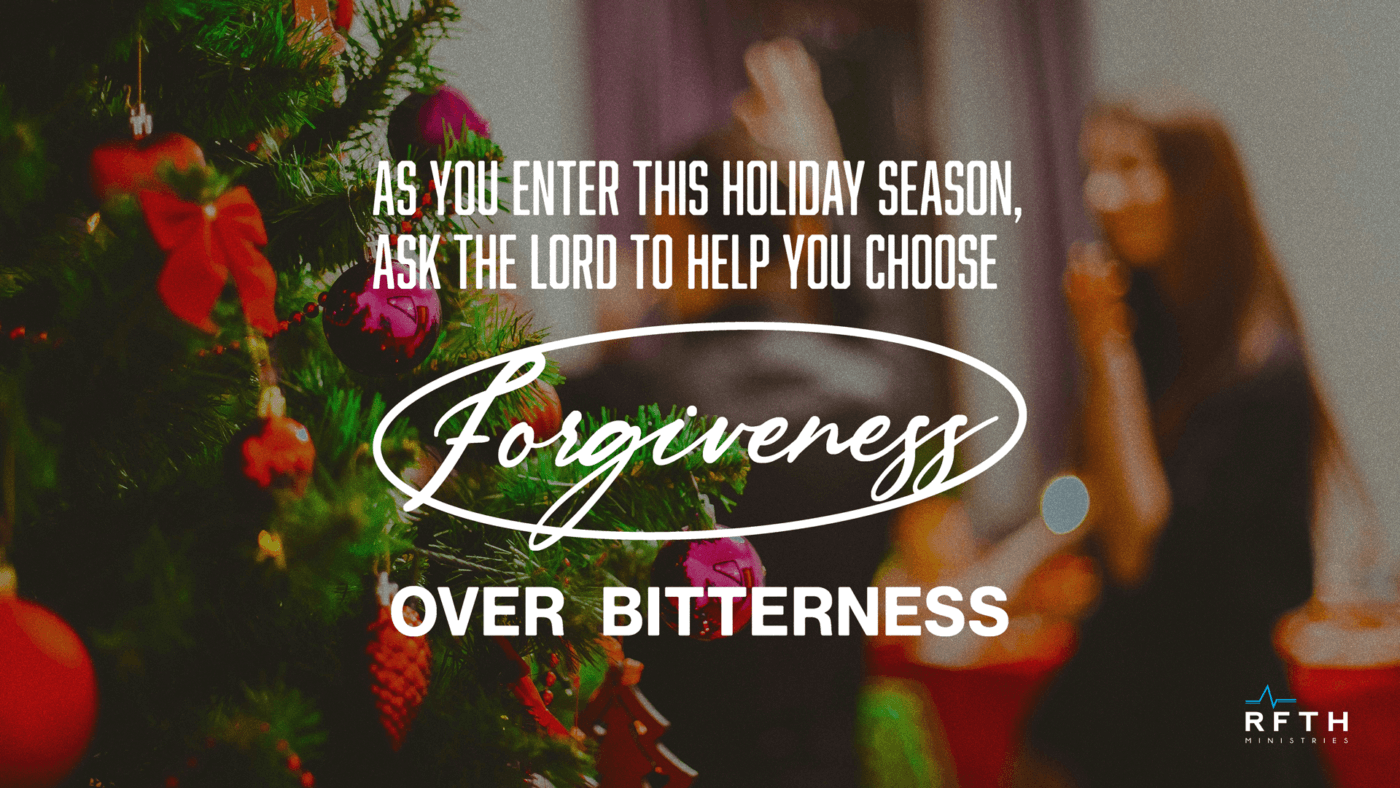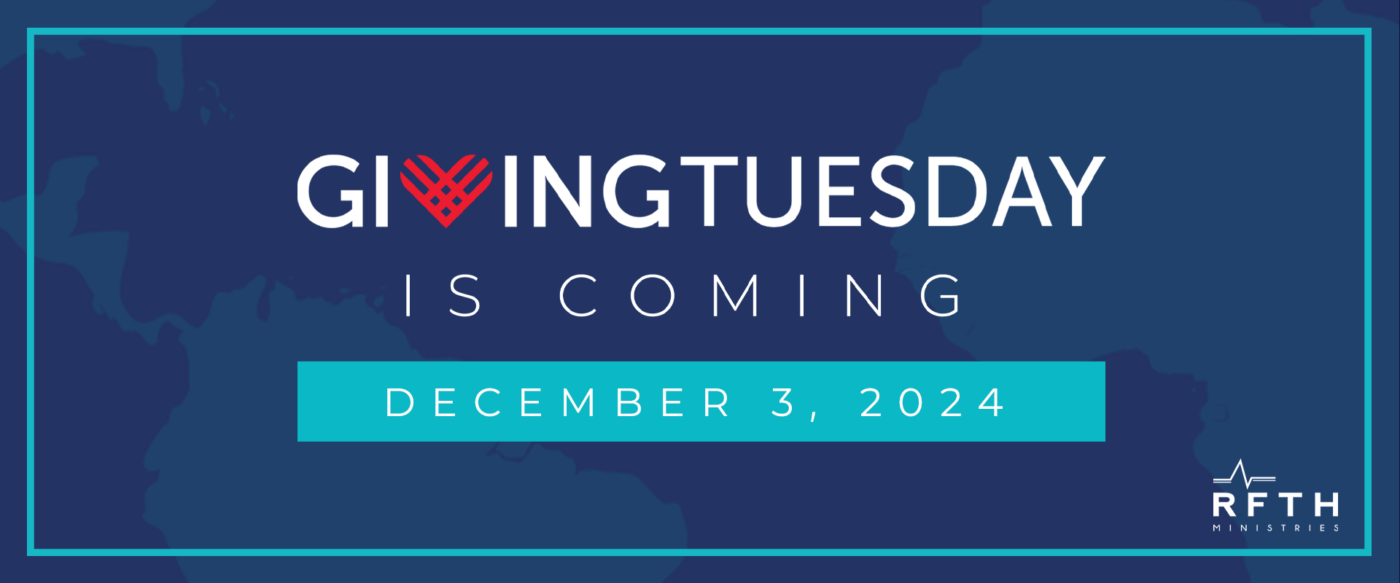
Jonathan Munson, Executive Director
“Get rid of all bitterness…forgiving each other, just as in Christ God forgave you.”
Ephesians 4:31,32
Ready or not, the holidays are here.
And with the holidays come family dynamics: the good, the bad, and the ugly.
No matter your family circumstances this holiday season, we must each decide what will govern our interactions with our families: forgiveness or bitterness.
You might not have considered forgiveness as a choice before, but that’s precisely what it is. Think about it. Every time someone hurts us, we choose how we’ll respond. We can either choose to forgive or harbor bitterness. It’s that simple.
That’s not to say the choice is easy. It’s not. At times, choosing to forgive seems almost impossible, especially when it pertains to broken family relationships. But as sons and daughters of the King, we’re called to imitate the forgiveness we’ve received from our Heavenly Father.
This is why Paul says, “Forgive each other, just as in Christ God forgave you.”
Notice that Paul doesn’t say, “Forgive because you feel like it.” Or even, “Forgive because it’s good for your health.” Paul says the motivation to forgive others is inextricably linked to the Lord’s forgiveness of us. We are to forgive because we’ve been forgiven.
This begs the question, “How has the Lord forgiven us?”
First, Jesus didn’t just tell His followers to forgive; He embodied it. You might say Jesus is forgiveness in the flesh. Hanging on the cross, He said, “Father, forgive them for they know not what they do” (Luke 23:34). Even in excruciating agony, Jesus chose to forgive those mistreating Him.
Though we don’t deserve it, He extends the same astonishing forgiveness to us, forgiving us of all our sins –past, present, and future. If we’ve received Jesus as our Lord and Savior, we stand on a rock-solid foundation of forgiveness. Refusing to forgive someone who hurts us reveals that we don’t fully comprehend or appreciate the foundation beneath our feet. And when we don’t make the choice to forgive, we automatically drift towards bitterness.
Before telling the Ephesians to forgive, Paul commands them to “get rid of all bitterness” (Ephesians 4:31). In other words, the church was to have a zero-tolerance policy against any form of bitterness. The moment bitterness reared its ugly head, they were to reject it.
Paul understood that the health of a young, fledgling Christian community was at stake. Bitterness threatened to rot the church from the inside out and would lead to a breakdown in relationships. On the other hand, forgiveness would foster healthy relationships in the church family.
The same goes for you.
When someone in your family hurts you, repeats the same painful behavior, or says something that cuts you to your core, you must choose to either forgive or become bitter.
From personal experience, I can tell you that choosing to forgive isn’t a one-time, climactic decision but a choice we must make every day.
Best-selling author Lysa TerKeurst, explains, “It takes just as much as much energy to stay bitter as it does to walk the path of forgiveness. Forgiveness frees us to walk a much less exhausting path, allowing our souls to exhale and untangle as we stop recalling resentments over and over.”
Is walking the path of forgiveness easy?
No, definitely not.
Will it always lead to reconciliation with the other person?
Not necessarily. It takes two people to reconcile. You can’t control the response of the other person.
Is walking the path of forgiveness worth it?
Absolutely. Forgiveness frees you from the prison of bitterness.
As you enter the holiday season, ask the Lord to help you choose forgiveness over bitterness.
Pray for His supernatural strength to help you stay on the path of forgiveness.
DIG DEEPER
Read “The Difficulty of Forgiveness” by Michael Kelley







